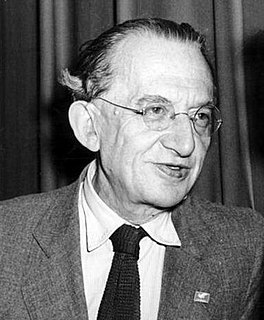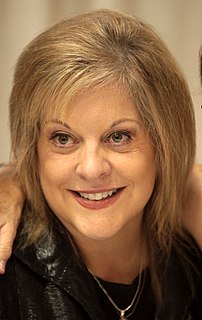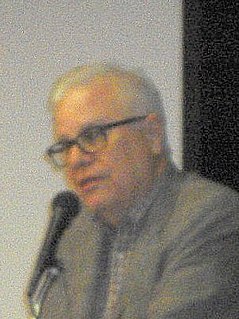A Quote by Laura Schlessinger
It takes courage to have a conscience when you seem to see others getting something tangible out of not bothering to struggle with the morality of a situation. It gets frustrating and demoralizing. This is precisely where character comes in. All throughout history special people have felt compelled to do what they objectively saw as right and good - even in the face of humiliation or rejection or expulsion or torture or death. That is because they believed that certain ideas were more important than individual well-being.
Quote Topics
Because
Being
Believed
Bothering
Certain
Character
Compelled
Conscience
Courage
Death
Demoralizing
Even
Expulsion
Face
Felt
Frustrating
Gets
Getting
Good
History
Humiliation
Ideas
Important
Individual
Morality
More
Others
Out
People
Precisely
Rejection
Right
Saw
See
Seem
Situation
Something
Special
Special People
Struggle
Takes
Tangible
Than
Throughout
Torture
Well
Well-Being
Were
Related Quotes
It wasn't only that you didn't see him anymore, meet him anymore. You saw his absence and encountered it as something tangible. His not being there was like the sharply outlined emptiness of a photo with a figure cut out precisely with scissors and now the missing figure is more important, more dominant than all others.
…the samurai ethic is a political science of the heart, designed to control such discouragement and fatigue in order to avoid showing them to others. It was thought more important to look healthy than to be healthy, and more important to seem bold and daring than to be so. This view of morality, since it is physiologically based on the special vanity peculiar to men, is perhaps the supreme male view of morality.
From the ethical point of view, no one can escape responsibility with the excuse that he is only an individual, on whom the fate of the world does not depend. Not only can this not be known objectively for certain, because it is always possible that it will depend precisely on the individual, but this kind of thinking is also made impossible by the very essence of ethics, by conscience and the sense of responsibility.
Honestly, some cases have been more famous than others - like Tot Mom, or Steven Avery, or Scott Peterson - but I would not characterize any one as being more special to me, more intriguing, or more important because that would be placing one victim as more important, or one defendant as more [notorious] than others, and I don't think that's right.
What has made America amazing has been the fact that throughout our history, throughout the more than 200 years of our history, there have been men and women of courage who stood up and decided it was more important to look out for the future of their children and their grandchildren than their own political futures.
In times of crisis what has made America amazing has been the fact that, throughout our history, throughout the more than 200 years of our history, there have been men and women of courage, who stood up and decided it was more important to look out for the future of their children and their grandchildren than their own political futures.
There is a very broad theory that society gets the right to hang, as the individual gets the right to defend himself. Suppose she does; there are certain principles which limit this right. Society has got the murderer within four walls; he never can do any more harm. Has society any need to take that man's life to protect itself? If any society has only the right that the individual has, she has no right to inflict the penalty of death, because she can effectually restrain the individual from ever again committing his offence.
You know what, the jacket’s like the car.” "“Is this a riddle?” " , "“No,” Peabody said as Eve swiped the master.","“It’s an", "ordinary thing—well, special, but a jacket, right? And the car, it’s ordinary, it even looks it. But both of them have the special inside. Cop special especially, you know? He so gets you. That’s even better than a just-because present.”", "“You’re right. He does. And it is.” Inside, Eve paused another moment. “He’s worried about me.”", [J.D. Robb, Celebrity In Death]
Marsh: Our best efforts were never even a mild annoyance to the Lord Ruler." Kelsier: Ah, but being an annoyance is something that I am very good at. In fact, I'm far more than just a 'mild' annoyance--people tell me I can be downright frustrating. Might as well use this talent for the cause of good, eh?
The ordinary man is living a very abnormal life, because his values are upside down. Money is more important than meditation; logic is more important than love; mind is more important than heart; power over others is more important than power over one's own being. Mundane things are more important than finding some treasures which death cannot destroy.
When you go for something because you're curious about it, you get psyched up about the chance of getting into it. It's like an actor meets a role, and you slip into that body and see what happens, to experience certain conditions, to adopt a certain character. Even shooting is a study of the character. I think both the character and the actor, and eventually the filmmaker - myself - are finding a way to accept their environment and being accepted and feel comfortable of themselves.
I knew marriage was not the answer to changing the conditions for poor, black, queer folks. So I never felt compelled to get married - it just didn't seem important. But even if marriage wasn't right for me at the time, or a quick fix toward black empowerment, I found it repulsive that loving same-sex couples were refused the right.
The state can be a force for good. The Rule of law is absolutely essential to a good life. God has instituted government and leaders throughout history and throughout the Biblical narrative. However, the state is growing precisely as the church is fading as a force for good, and this does not seem to be a good trend.
Increasingly I felt as if I were entering a struggle that might even be more than life and death. It might be a struggle for my soul, my essence, or whatever part of me might have reference to the eternal. There are worse things than death, I suspected... so far the word demon had never been spoken among the scientists and doctors who were working with me...Alone at night I worried about the legendary cunning of demons ...At the very least I was going stark, raving mad.





































